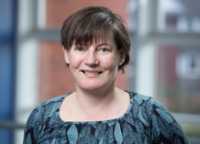Author Interviews, Autism, Occupational Health / 08.04.2019
Same Autistic Trait Can Be Helpful or Hindering, Depending on Context
MedicalResearch.com Interview with:
Ginny Russell, PhD
College of Medicine and Health, University of Exeter Medical School
University of Exeter
Exeter United Kingdom
MedicalResearch.com: What is the background for this study? What are the main findings?
Response: The study was done to find out what autistic adults could tell us about their own abilities. They told us about their abilities and how these abilities had helped them in their everyday lives: at work, in their relationships with other people, and at home.
Hyper focus, attention to detail, and the ability to remember were the abilities that autistic people said benefitted them most often. But autistic adults who were interviewed said although their autistic traits were sometimes helpful, at other times they hindered their progress. So the same trait might be useful in some circumstances and unhelpful in other situations. For example, hypersensitivity led one person to enjoy nature, but was difficult to cope with in crowded streets. The study highlights this interchangeability.
(more…)


